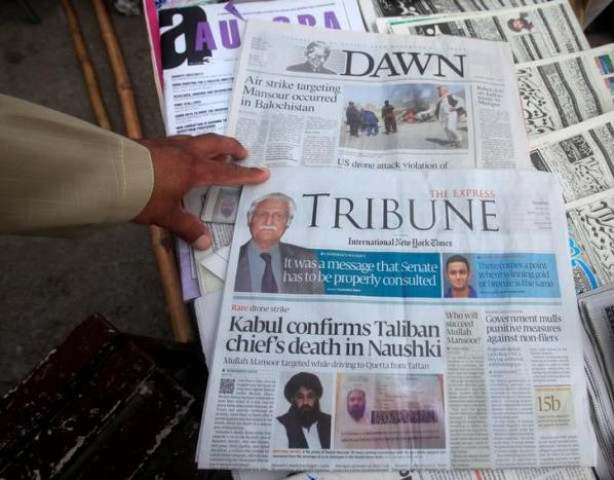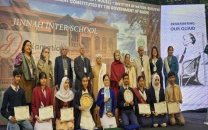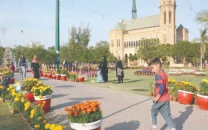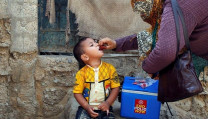Self-censorship is on the rise within news organisations in Pakistan, says media watchdog
Out of 180 countries in the annual World Press Freedom Index, Pakistan ranks at 139

Newspapers containing news about Afghan Taliban leader Mullah Akhtar Mansour are on display at a stall in Peshawar, Pakistan, May 23, 2016. PHOTO: REUTERS
Out of 180 countries in the annual World Press Freedom Index, Pakistan ranks at 139 - same as last year - with an index of 43. 55. "The Pakistani media are regarded as among the freest in Asia but are targeted by extremist groups, Islamist organisations, and state intelligence agencies, all of which are on RSF’s list of Predators of Press Freedom," the report said.
Cameraman killed as Samaa TV's van attacked in Karachi
Although fatal attacks on journalists are carried out every year, the watchdog noted the number to have dropped in the last four years.
According to RSF, the country's "government officials, political parties, and party activists are also quick to harass, threaten, or physically attack journalists regarded as unsympathetic to their views," because of which"'self-censorship is on the rise within news organisations".
"Adoption in 2016 of the Prevention of Electronic Crimes Act, under which criticism of the military, the judicial system, and Islam can lead to imprisonment, was condemned by the media," it said.
The RSF index found that in the past year nearly two-thirds of the countries had registered a deterioration in their situation, while the number of countries where the media freedom situation was 'good' or 'fairly good' fell by more than two per cent.
Last Year: Dozen G-B journalists threatened
"Attacks on the media have become commonplace and strongmen are on the rise. We have reached the age of post-truth, propaganda, and suppression of freedoms - especially in democracies," the report said. "Media freedom has retreated wherever the authoritarian strongman model has triumphed."
Meanwhile, Turkey "swung over into the authoritarian regime camp" after the failed coup against President Recep Tayyip Erdogan in July, it said, adding bitterly that it "now distinguishes itself as the world's biggest prison for media professionals." Seven places ahead of Turkey, "Vladimir Putin's Russia remains firmly entrenched in the bottom fifth of the index," in 148th place, it added. China, war-torn Syria - the deadliest country for journalists - and Turkmenistan complete the bottom five.
RSF Secretary-General Christophe Deloire said, "The rate at which democracies are approaching the tipping point is alarming for all those who understand that, if media freedom is not secure, then none of the other freedoms can be guaranteed."
57 journalists killed worldwide in 2016: rights group
"Where will this downward spiral take us?" he asked.
Countries with the world's freest media include Norway - right at the top. It took over from neighbouring Finland, which had held the title for six years. Italy showed the biggest improvement, rising 25 places to 52nd place thanks to the acquittal of journalists tried in the Vatileaks II case, which exposed a scandal at the top of the Catholic Church.
Nicaragua registered the biggest fall of 17 places, with the controversial re-election of President Daniel Ortega "marked by many cases of censorship, intimidation, harassment and arbitrary arrest," the RSF said. Tanzania also saw a sharp decline. President John Magufuli "keeps tightening his grip on the media," RSF said.



















COMMENTS
Comments are moderated and generally will be posted if they are on-topic and not abusive.
For more information, please see our Comments FAQ